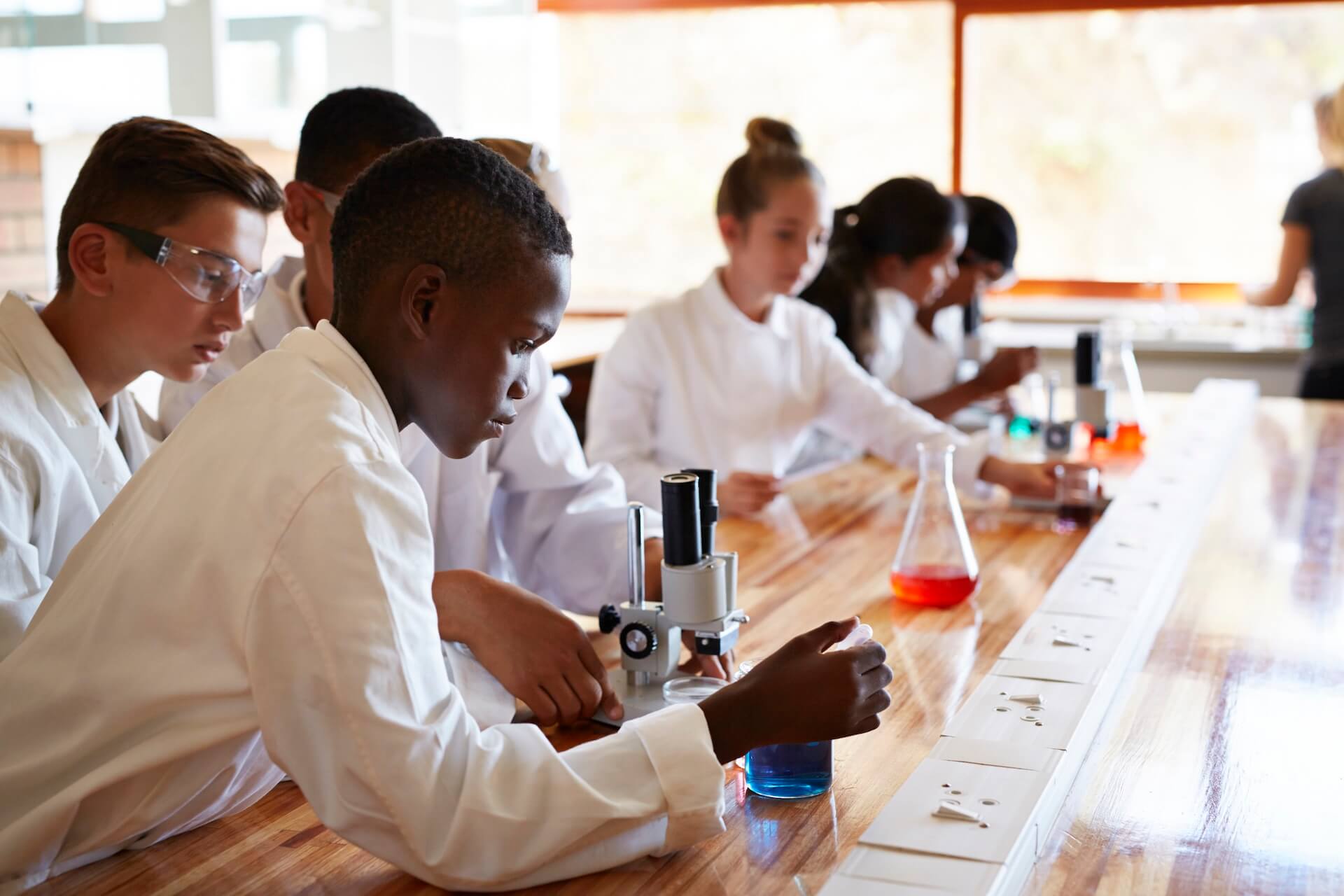Federal University of Minas Gerais hosts BRICS countries for international chemistry games
Olympiad was created at the Faculty of Chemistry of Lomonosov Moscow State University to encourage the development of scientific talent in the field of chemistry.

From Ministério da Educação
The International Mendeleev Chemistry Olympiad (IMChO), originally from Russia and considered one of the world’s leading competitions for high school students, will be held for the first time outside Eurasia. From May 5 to 12, the Department of Chemistry at the Institute of Exact Sciences (Departamento de Química do Instituto de Ciências Exata/ICEx) of the Federal University of Minas Gerais (Universidade Federal de Minas Gerais/UFMG) will host around 200 high school students from more than 20 countries—including South Africa, China, India, Saudi Arabia, Egypt, and the United Arab Emirates, which make up the BRICS group—for the theoretical and practical exams that make up the 59th edition of the competition.
Brazilian students began participating in the IMChO only recently, and the teams of Brasil have shown promising results, winning medals in the 2023 and 2024 editions held in Kazakhstan and China.
The olympiad was created at the Faculty of Chemistry of Lomonosov Moscow State University with the aim of encouraging the development of scientific talent in the field of chemistry. Professor João Paulo Ataide Martins, from the Department of Chemistry at ICEx/UFMG usually accompanies Brazilian student delegations on trips to international competitions. According to him, this kind of event is essential to spark students’ interest.
“This is a high-level competition that gives the country’s most talented students the opportunity to engage with the most advanced chemistry content, which is extremely important for their education. In addition, the olympiad is a highly enriching experience, as it allows them to connect with other cultures and meet people from around the world,” he says.
Professor Arilza de Oliveira Porto, head of the Department of Chemistry, adds that interaction with students and professors from other countries is beneficial because it gives Brazilian students a chance to learn about the infrastructure of universities in other countries. This encourages them to remain in the field and to seek study opportunities outside Brasil as well. In addition, the tournament helps attract more women to the field of chemistry, which remains predominantly male. “We make a continuous effort to bring more women into chemistry, and the competition contributes to that,” she says.
Porto also notes that the tournament can be used as a selection tool for higher education, as many universities already offer reserved quotas for students who win medals in academic competitions. “In several countries, olympiad medalists are guaranteed admission to universities. We are interested in extending this practice here at UFMG, and it is a proposal we intend to discuss with the University.”
Rector Sandra Regina Goulart Almeida highlights that Brasil is hosting the International Mendeleev Chemistry Olympiad at a time when the country is presiding over the BRICS bloc. “Brasil is implementing several initiatives to improve school and university education, as well as creating continuous training programs for teachers. To achieve national development goals, we need chemists. That is why we aim to inspire young people to choose this science as a career. Through the Mendeleev Olympiad, we hope to encourage discoveries in the field and help participants build connections with talents from around the world,” she said.
To the Russian creators of the olympiad, the event also contributes to the popularization of chemical education and the dissemination of best educational practices, laying the foundation for the formation of future scientists, industrialists, and thinkers. The event, therefore, represents an opportunity to enhance the prestige of the chemistry profession.
According to the director of the Department of Chemistry at Lomonosov Moscow State University and vice president of the Russian Academy of Sciences Stepan Kalmykov, in nearly 60 years the tournament has been a platform for the exchange of experiences and knowledge among young people passionate about chemistry. “It is the younger generation that faces the task of achieving both their countries' national goals and those common to all humanity. The competition promotes the exchange of experiences among talented students from around the world, bringing countries and peoples closer together for the sake of universal prosperity,” he said.
In three rounds
The students will participate in three rounds of tests, two theoretical and one practical. The tasks in the first theoretical round correspond, in terms of complexity, to the program of specialized classes. In the second theoretical round, higher-level activities are offered, which may cover various areas of chemistry, such as organic, inorganic, physical, analytical, or life sciences.
The third round of tests is practical, and the students will use the teaching laboratories of the Department of Chemistry at UFMG. The experimental round of the olympiad lasts five hours and requires participants to demonstrate skills in working in a laboratory, performing substance analyses according to the proposed methodologies.
Throughout the competition, the participants' mentors also meet with professors, hold roundtables, seminars, and masterclasses, fostering cooperation initiatives among the participating institutions. The winners of the International Mendeleev Olympiad receive bronze, silver, and gold medals. Some participating countries may also offer their winners scholarships or cash prizes.
International Mendeleev Chemistry Olympiad
The tournament was named in honor of the Russian chemist Dmitry Ivanovich Mendeleev, who discovered the periodic law, which served as the basis for the creation of the Periodic Table of Chemical Elements.
"This year's edition is organized by UFMG, the Faculty of Chemistry of Lomonosov Moscow State University, and by the Melnichenko Foundation, which recognizes the winners of the individual competition with the Valery Lunin Academic Award, created in honor of the founder of the Mendeleev Olympiad and a key figure in its international prominence.